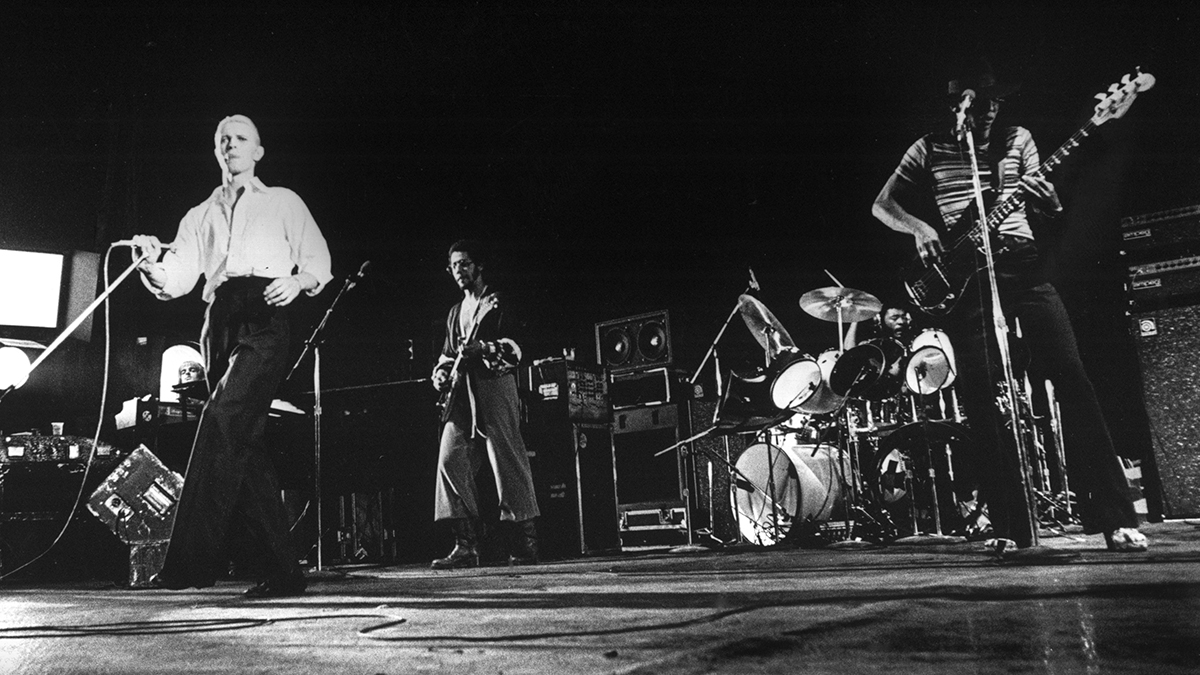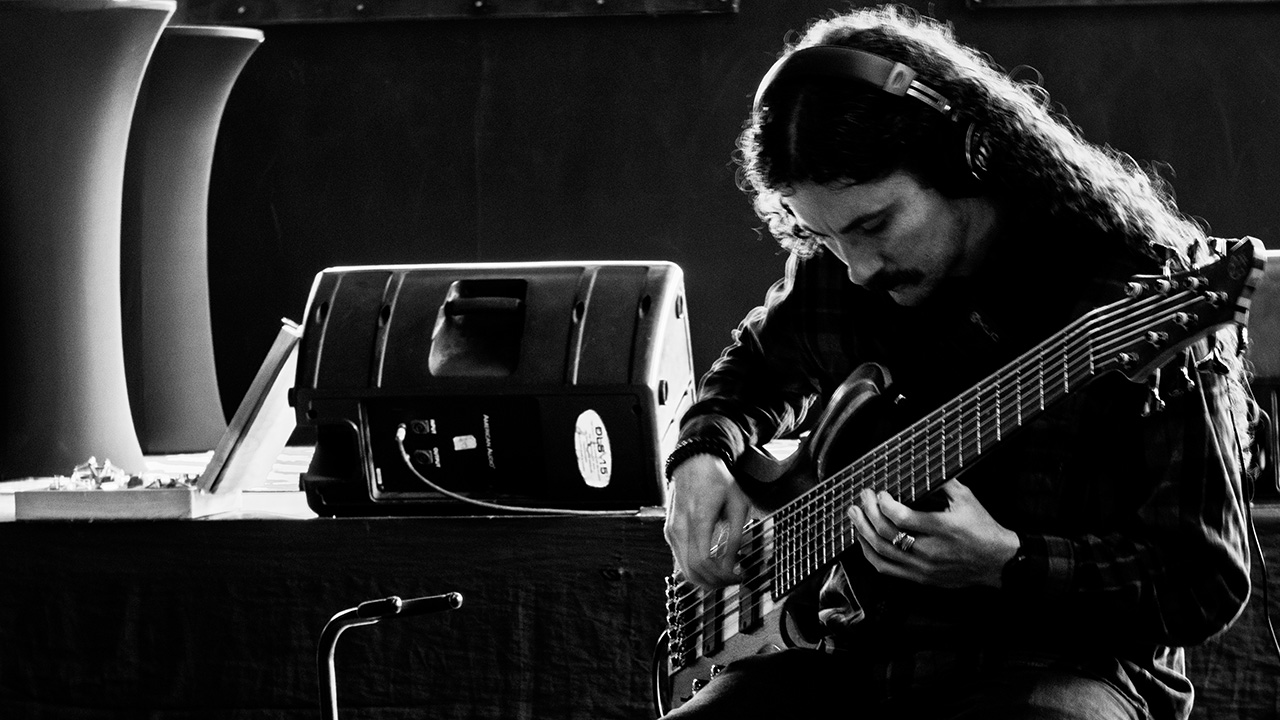“I had forgotten something – I don't know what. As I came back, I heard my father say, ‘Wait a minute, here he is!’” George Murray became part of David Bowie’s famous D.A.M. rhythm trio – but almost missed the call-up because he had to catch a bus
The D.A.M. Trio recorded and performed extensively with Bowie across the '70s, but the revered rhythm section could have looked very different had Murray caught his bus

Back in the mid ‘70s, David Bowie assembled a new rhythm section, which comprised drummer Dennis Davis, guitarist Carlos Alomar, and bass guitar player George Murray.
Together, they became known as the ‘D.A.M. Trio’ – a backline tour de force that recorded extensively with Bowie across a hectic 10-year period that saw the release of Station to Station (1976), Heroes (1977) and Lodger (1979), among others.
In the words of Alomar himself, the D.A.M Trio “redefined David Bowie once again and helped launch him into the next levels of his career” – but it turns out the revered rhythm trio came close to not existing at all.
As Murray explains in an upcoming Guitar World interview, he almost missed the call-up to Bowie’s band... because he had to catch a bus.
“I got a call, and I almost missed the call that day. I almost did,” he recalls. “I was around New York City and met [drummer] Dennis Davis and [guitarist] Carlos Alomar. I knew Carlos and Dennis had the gig with David from Young Americans.
“One day in September 1975, which was a warm day in New York City, I left the house; I was living with my parents,” Murray continues. “So, I was walking to catch a bus, and I had forgotten something; I don't know what it was.
“As I came back up the driveway to the house, the window was open in the kitchen, and I heard my father say, 'Wait a minute, wait a minute, here he is.' I walked in, and my father handed me the phone.
All the latest guitar news, interviews, lessons, reviews, deals and more, direct to your inbox!
“It was Dennis letting me know that David was looking for a bass player. He wanted to know if I wanted to come out to Los Angeles to work on the album [Station to Station]. I said, 'Sure.' So, I got the flight, and two or three days later, I was in Los Angeles.”
Maybe Davis would have called back later when Murray had returned from his trip, and Murray may still have been sought after by the drummer had he actually remembered to pack properly. It was a mighty close call, though.
As Murray goes on to explain, he linked up with Bowie – as well as his future D.A.M Trio colleagues – shortly after the call for what he viewed as a “live audition”.
“I looked at it as a live audition, like I was auditioning for the spot to work with David Bowie and my friends, Carlos Alomar, and Dennis Davis, on a recording for David. I looked at the experience pretty much as a live audition until I got the offer to go on tour.”
The rest was history. Murray contributed to six studio albums between 1976 and 1980, and featured on some of Bowie’s biggest hits. He is also credited with working on two live albums from 1976 and 1978, which were released in the 2010s.
Keep your eyes peeled on GuitarWorld.com for the full interview with George Murray.
George Murray will be appearing alongside Carlos Alomar at the David Bowie World Fan Convention later this year. The event will take place 26-28 July in Liverpool, UK. For tickets and more information, visit the Bowie Convention website.

Matt is the GuitarWorld.com News Editor, and has been writing and editing for the site for five years. He has a Masters in the guitar, a degree in history, and has spent the last 19 years playing everything from blues and jazz to indie and pop. During his GW career, he’s interviewed Peter Frampton, Zakk Wylde, Tosin Abasi, Matteo Mancuso and more, and has profiled the CEOs of Guitar Center and Fender.
When he’s not combining his passion for writing and music during his day job, Matt performs with indie rock duo Esme Emerson, and has previously opened for the likes of Ed Sheeran, Keane, Japanese House and Good Neighbours.
